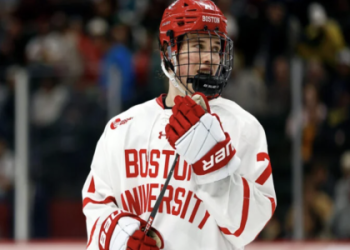Navigating the world of college hockey recruitment can feel like skating on thin ice for many players. With schools competing fiercely to attract top talent, athletes and their families often find themselves wondering how to make themselves stand out. The D1 Hockey Portal has emerged as an essential tool for players looking to elevate their recruitment prospects in this highly competitive environment.
The D1 Hockey Portal provides a centralized platform where athletes can create profiles, upload highlight reels, and connect directly with college coaches. For instance, recent feedback from players using the portal highlights its ease of use. “The portal allowed me to showcase my skills to coaches I wouldn’t have reached otherwise,” stated Sam Thompson, a high school standout. As College Hockey becomes increasingly competitive, players realize the value of presenting their abilities effectively. This platform presents not just a chance to be seen, but a critical starting point in the recruitment journey.
Moreover, success in college hockey recruitment intertwines closely with a player’s performance metrics and statistics. Coaches seek players who not only excel on the ice but also demonstrate leadership qualities and work ethic. For example, in a recent showcase, a promising forward made a significant impact by scoring crucial goals while maintaining a relentless forechecking effort. Coach Mark Johnson, who attended the event, emphasized, “We’re always looking for players who can contribute to our team culture, not just their physical skills.” This quote encapsulates the reality of college recruitment; talent is crucial but understanding team dynamics is equally important.
Additionally, it is vital for athletes to understand the nuances of recruitment timelines. Recruitment often begins as early as junior year, with players needing to be proactive. Often, potential recruits face pressure to constantly prove themselves at showcases and tournaments. The constant travel and competition can be overwhelming. Mike Reynolds, a seasoned junior hockey player, remarked, “It feels like a never-ending cycle. Some days, it’s hard to stay motivated, but I know it’ll pay off.” Such sentiments reflect the mental and emotional challenges athletes navigate as they seek to secure a college position.
Background context is essential here. College hockey programs are increasingly relying on data and advanced metrics to evaluate prospects. In this era of analytics, players should be aware of how traditional statistics like goals and assists interrelate with advanced metrics such as Corsi and Fenwick ratings. For instance, programs that value puck possession as an essential element of their strategy will closely analyze these metrics. Understanding this can prepare players to align their skills with the needs of specific programs.
Amidst these complexities, the players’ voices matter. Many prospects find themselves reflecting on their journey through this tough landscape. “I’ve learned to trust the process,” shared Jessica Lin, a highly sought-after defenseman. Her perspective is one of resilience amidst the turbulent waters of recruitment. Players who focus on their development and growth rather than solely on the end goal often find greater success. Testimonials like Jessica’s reveal the importance of mindset and preparation in this domain.
While recruitment may feel like an uphill battle, tools like the D1 Hockey Portal empower players. Thus, it’s crucial for players and their families to explore every resource available. Engaging with coaches, understanding programs’ philosophies, and utilizing technology can turn the tide in their favor. The portal provides a bridge, allowing players to seize opportunities and connect with coaches who seek their talents.
In conclusion, navigating college hockey recruitment demands not just skill, but a strategic approach to showcasing abilities and understanding the recruitment landscape. As players engage with this process, they must continually assess their progress and adapt their strategies. What steps do you think aspiring college hockey players should take to enhance their recruitment chances? Share your thoughts and experiences in the comments!















